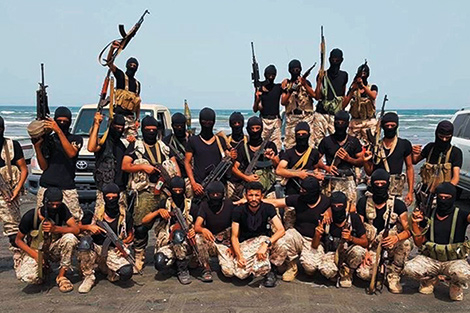Al Mukalla: Coastal areas of Yemen’s province of Hadramout and neighbouring areas have been completely cleared of Al Qaida militants, the governor of Hadramout said on Sunday.
Three years ago Al Qaida occupied Hadramout’s capital of Al Mukalla, but the militants were largely uprooted thanks to UAE-backed efforts to rid the territory from their grip.
Major General Faraj Salmeen Al Bahsani said local security and military authorities have thwarted Al Qaida’s attempts to resurface in their former strongholds in the province and killed and captured a large number of militants during recent operations.
“We have completely uprooted Al Qaida and captured a big number of militants, including some dangerous leading figures,” he said in an interview with the Saudi state-owned Al Ekhbariya on Sunday.
Al Qaida militants were able to exploit a power vacuum in the territory when the military collapsed there in April 2015.
Local military officials believed there was collusion between some army units in Al Mukalla that remained loyal to Al Houthis and Al Qaida to undermine the Saudi-led coalition military operations in Yemen.
Al Bahsani, who is also the commander of Al Mukalla-based 2nd Military Region, said hundreds of troops have recently been dispatched to rural areas in the province to prevent Al Qaida militants from regrouping.
“In Al Mousaini valley, Al Qaida received a fatal blow and was forced into fleeing to Al Houthi-held Baydha,” he said, referring to a rugged mountain west of the city of Al Mukalla that have long been known as Al Qaida’s safe haven.
“We will not allow them to gain a foothold in Hadramout.”
During post-liberation raids against Al Qaida’s hiding places, many foreign militants have been either killed or captured but some are still at large.
Unlike other liberated areas in Yemen that have been plagued with assassinations and deadly terrorist attacks, liberated Hadramout enjoys relative peace and has become a safe haven for Yemenis internally displaced by the conflict.
At least 1,000 families have sought refuge in Hadramout placing a burden on health and education facilities in the province.













